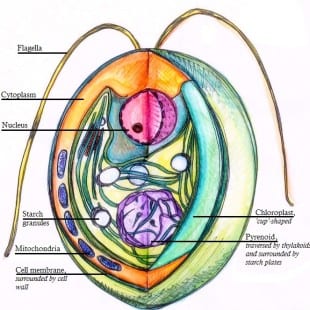
In a new paper in the Journal of Biological Chemistry, Stephen Campbell and David Stern show that chloroplast extracts from C. reinhardtii can cut an interrupting insertion from a protein, but only in the light.

This July summer interns have taken over our Twitter account. Check out our Twitter feed to learn more about life in the lab for an undergrad during a #BTISummer.

Starting July 11, summer interns are launching a Twitter takeover. Check out our Twitter feed to learn more about life in the lab for an undergrad during a #BTISummer.

The renowned German forest scientist and former Director of the Forest Biology Program at BTI passed away July 5 at the age of 93.

By supporting STEM education efforts at BTI and other local institutions, Galvin aims to get young children excited about science and engineering.

When C. elegans larvae face starvation, they clump together in a mass of worms, which increases their lifespan. BTI researchers will explore this fascinating social behavior.

Starting July 11, summer interns are launching a Twitter takeover. Check out our Twitter feed to learn more about life in the lab for an undergrad during a #BTISummer.
Despite its reputation for wreaking havoc in cells, singlet oxygen is also vital for triggering the repair of a key protein complex for photosynthesis.

A group of students and experts work together through video conferencing to identify the genes in the genome of the newly sequenced Asian citrus psyllid, the insect that spreads the bacterium that causes citrus greening disease.
The faculty and staff of BTI express their deepest sympathies to the Park family, with the passing of Dorothy Park, dedicated humanitarian and president emeritus of the Park Foundation.
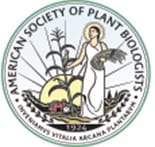
Postdoctoral researcher Vered Tzin received support to present her work at the American Society for Plant Biology annual meeting in July, and Cairo Archer received an undergraduate research fellowship to support her summer research in the Jander lab
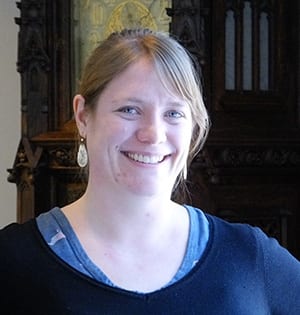
A former graduate student at BTI, Brauer now studies Fusarium head blight at Agriculture & Agri-Food Canada.

Tanksley made invaluable contributions to plant breeding and genetics, laying the foundation for targeted crop improvements to increase food security.

Get to know the new crop of interns at BTI.
An international consortium of researchers has sequenced the two wild parent species of the domesticated petunia
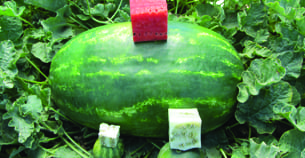
Watermelons have changed from a small, bitter fruit that grows wild in Africa to the most popular fruit in the world. What’s next for watermelons?

Bolus was a 2011 intern in the Klessig Lab, which confirmed his research interests in molecular plant-microbe interactions. He is now pursuing a Ph.D. in plant pathology at UC Davis.

Meyer has significant experience working within the non-profit and scientific communities and has strong ties to the Ithaca Area.
Attendees of the 2016 Association of Education and Research Greenhouse Curators annual meeting in July will spend a morning at BTI learning about its history and research

Industry scientists visited BTI to give young researchers inside advice on pursuing a research career at a company
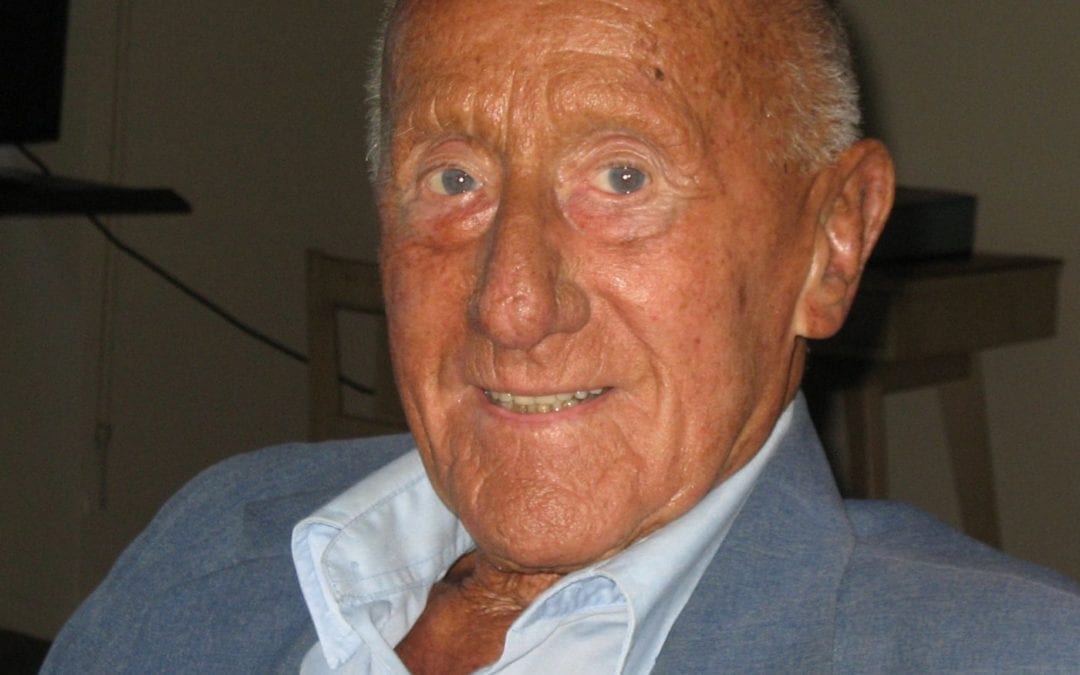
The distinguished scientist left an incredible legacy of plant and insect discoveries and he will be missed by his many friends and colleagues.

Yu was a two-time intern in the PGRP, which confirmed her love of botany. She is now a research assistant at the Arnold Arboretum at Harvard University and has plans to attend graduate school.
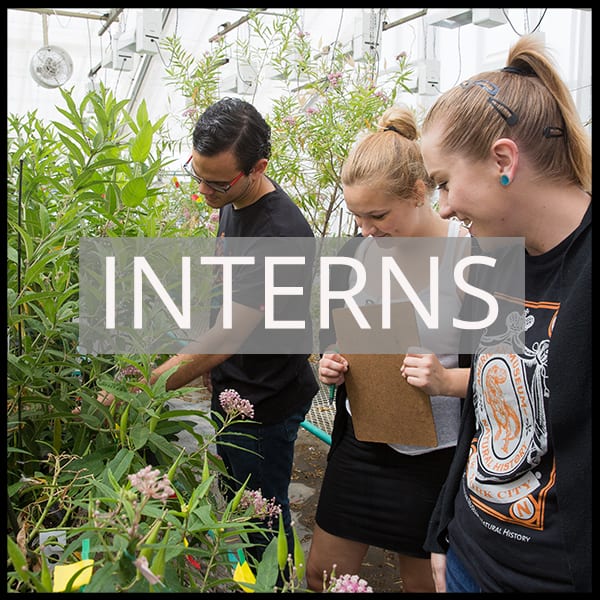
Patel is about to graduate from Cornell–and the Martin lab–to return to his native California to continue his career in plant science.

Beacham returned to Ithaca this year to start her Ph.D. in Biochemistry, Molecular and Cell Biology at Cornell University,
Mimicking the effects of a Guatemalan tuber moth infestation in agricultural fields could increase potato yield and reduce pest damage.

Jim Giovannoni, BTI professor, USDA-ARS research molecular biologist and Cornell University adjunct professor, is recognized by the National Academy of Sciences for his significant contributions to plant science.
Cornelius, an expert in governance, global economic development and investing, will work closely with BTI’s Technology Transfer Office.

Craig is finishing up his B.S. in biological engineering and has plans to pursue a Ph.D. and conduct translational research.

The transformation of the former Boyce Thompson Institute (BTI) building at 1086 N. Broadway in Yonkers, NY is well under way.

Murphy will complete her bachelor’s degree in biochemistry in May 2016 and will start her Ph.D. in microbiology at Cornell University in the fall.
An important part of BTI’s mission is to advance scientific knowledge to protect the environment. Here are a few of the current projects at BTI that work to achieve that mission.

The Spring 2016 issue of the Parkinson’s Disease Foundation newsletter featured recent work by Dan Klessig. The newsletter highlighted his recent PLOS ONE paper on salicylic acid and human GAPDH.

Ather is working towards his undergraduate degree in both physics and philosophy, with plans to pursue higher degrees in philosophy and computational neuroscience.

McNally has finished her masters degree in plant science and is now pursuing her Ph.D. in plant-pathogen interactions at the University of Zurich.
A partnership with Tompkins Cortland Community College allows BTI to offer an evening biology class and gives grad students and postdocs an opportunity to teach their own class.
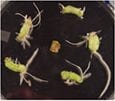
In a JOVE publication, postdoctoral researcher Thomas Jacobs uses tomato hairy roots to demonstrate how multiple CRISPR vectors can be constructed in parallel in a single cloning reaction.

Zambrana-Echevarria is about to defend her masters degree at the University of Puerto Rico, Mayagüez, on genetic diversity in papaya ringspot virus on the island, and deciding between Ph.D. programs at U.S. universities.

The latest issue of BTI Labnotes is here. Don’t miss an issue. Sign up for our monthly newsletter today.
Research from the Klessig lab shows that HMGB3 signals to the plant immune system when tissues are damaged and makes plants more resistant to certain infections.

Currently, Gipson is pursuing his Ph.D. in Molecular Biology and Genetics at Cornell University with aspirations to introduce new generations of college students to research at a liberal arts college.
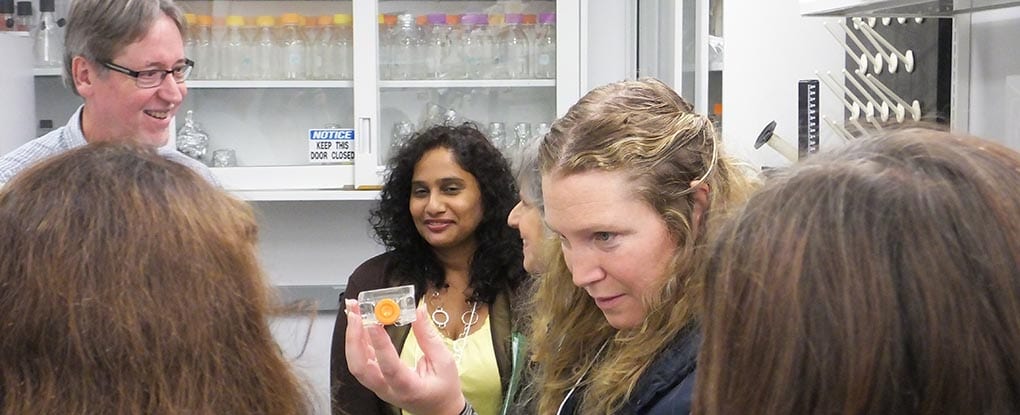
The Education and Outreach group faces the tough task of selecting a group of motivated teachers that serve diverse populations of students.

Groom is currently working on a Ph.D. in genetics at the University of Georgia and plans to pursue a career in a national laboratory.

The group from Team I.M.P.A.C.T. of Rochester, NY, exposed young men to potential careers in the plant sciences.
Woodland agrimony is so rare in New York that there weren’t enough plants to study why it is in decline. The Van Eck lab used tissue culture techniques to multiply the plant.

Visitors to the soon-to-be reopened Boyce Thompson Center in Yonkers, New York, will receive a dose of BTI history.

Tompkins County has awarded Gomes Selman, a 2015 high school intern at BTI, its Distinguished Youth award for his numerous academic and volunteer commitments.
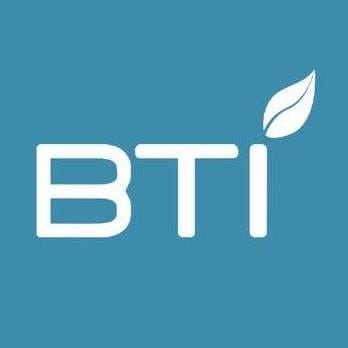
Boyce Thompson Institute is proud to announce that it is expanding its brand, while shortening its name.

Park honors his father’s legacy through his BTI board service and the Triad Foundation’s Plants and Human Health grant program.

Giovannoni and Kochian both ranked in the top 1 percent of researchers publishing in plant and animal science.

His experience at BTI created a foundation for future work investigating metabolic pathways.



























